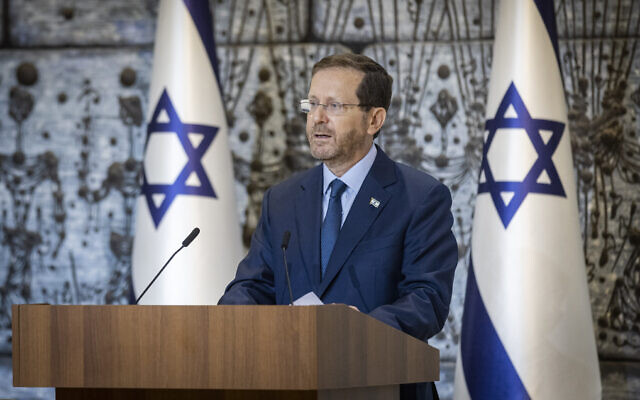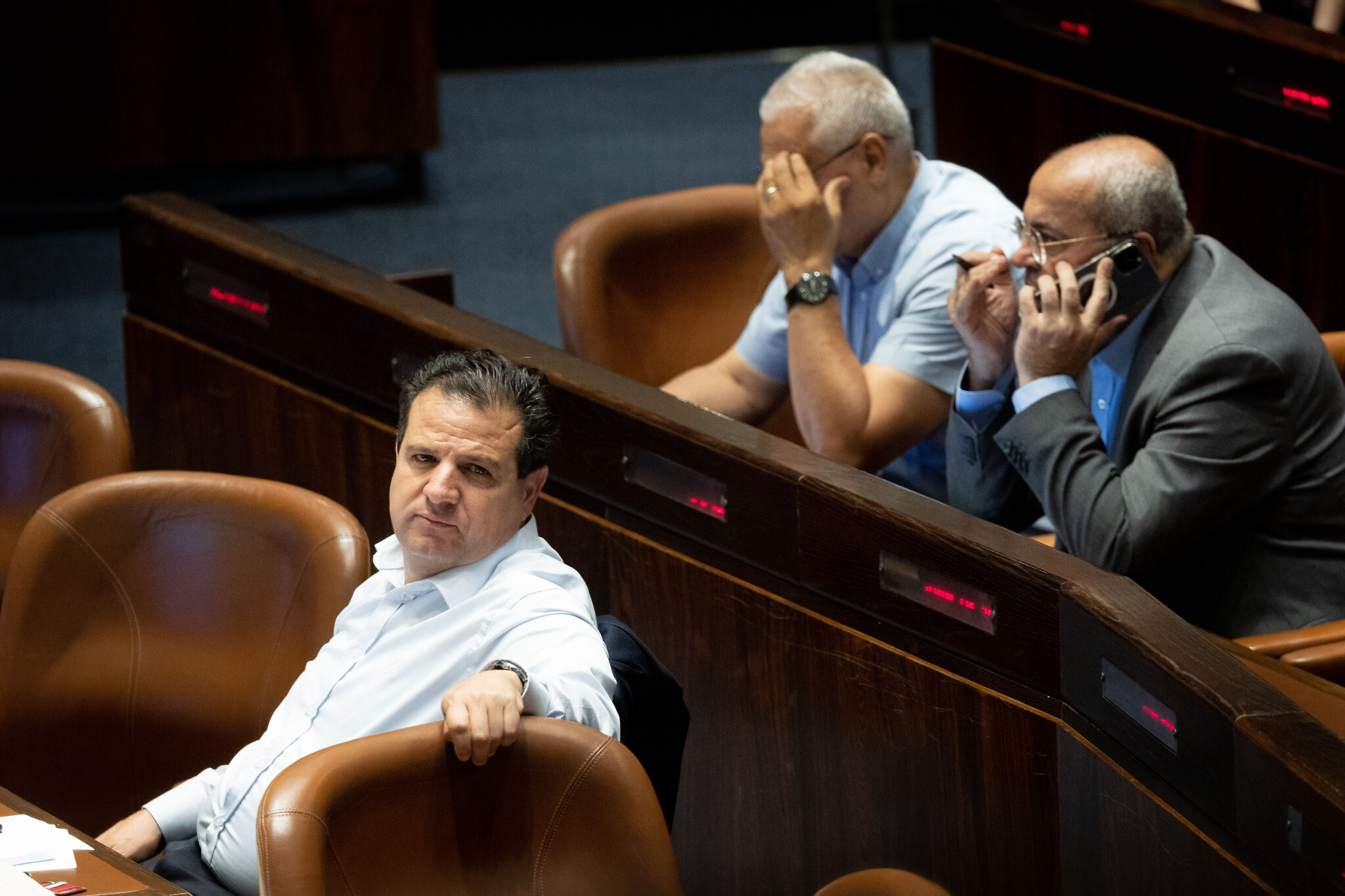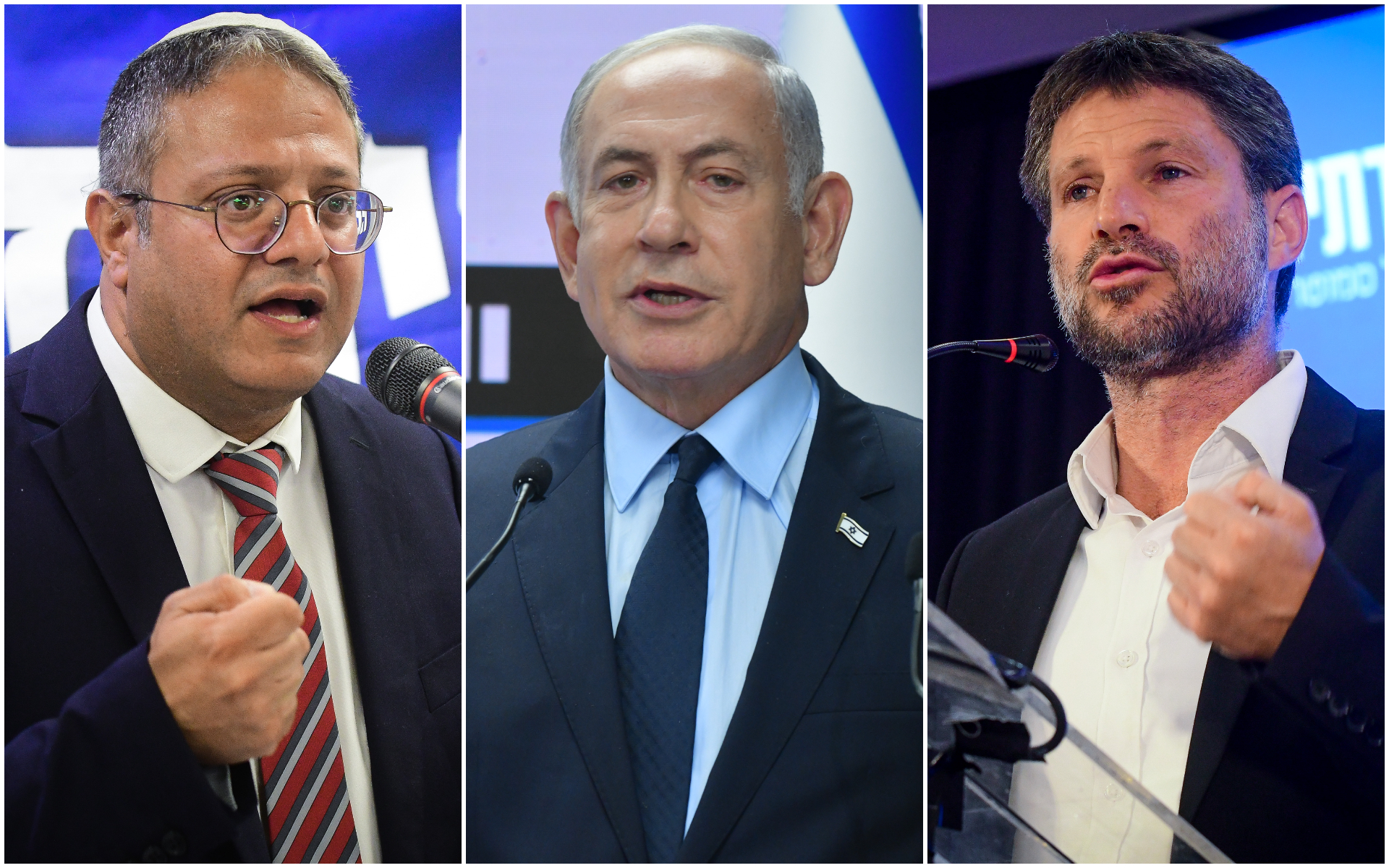President said to make comments to lawmakers from across political spectrum; spokesperson for Herzog says he will not interfere in election, but believes stability is important

President Isaac Herzog has reportedly told lawmakers from across the political spectrum that he will work for the establishment of a broad unity government after the November 1 elections.
The president made the comments in meetings with MKs in recent weeks, the Kan public broadcaster reported Sunday.
Israel’s president plays a key role in deciding who gets the mandate to form a government following elections.
“I intend to roll up my sleeves after the elections and work to establish a unity government as broad as possible and at any cost, to stabilize the system because the citizens of Israel are tired of this routine of elections,” Herzog said, according to unnamed sources, as Israelis head to the polls for the fifth time in under four years.
The sources told Kan that the president said he believes Israeli citizens want a stable government that will deal with both security and the economy.
In a statement to the network, a spokesperson for the president did not deny the report.
“The president does not intend to interfere in the elections and is not concerned with the composition of the government and the identity of its leader. In the past year, he has not hidden his opinion that governmental stability is important for dealing with the great challenges facing the State of Israel,” the statement read.
Separately, Joint List leader Ayman said Sunday that with Prime Minister Yair Lapid’s “current attitude,” the party would not recommend him to Herzog as prime minister.

“It is clear to us that we do not want to see Smotrich and Ben Gvir in power,” Odeh told Army Radio, referring to the far-right politicians expected to hold prominent ministerial portfolios in a potential Netanyahu-led government. “However, that does not mean we will recommend Lapid or Gantz.”
“With the current attitude of Lapid and [Defense Minister Benny] Gantz, they will not receive [our] recommendation,” the Joint List leader said.
He said he would need to see “real, real change” in the approach of the politicians.
Odeh said earlier this month that the alliance he leads would condition a recommendation to the president on various promises, such as support for a resumption of diplomacy with the Palestinians, crime-fighting measures and other benefits to the Arab public.
Polls published Friday indicated that former prime minister Benjamin Netanyahu’s bloc would win 60 seats in the upcoming election, just one seat short of the minimum majority required to form a government, after a split among the Arab parties.

The Joint List announced late Thursday it would run in the elections as two separate factions, Hadash-Ta’al and Balad, in a surprise 11th-hour move that the polls predict will significantly dilute Arab representation in the Knesset on November 1.
Friday’s polls by channels 12 and 13, conducted after the announcement, both predicted that Balad would not pass the electoral threshold, wasting Arab votes.
Israeli TV polls are notably unreliable, but nevertheless, often steer the decision-making of politicians.
With Israel seemingly deadlocked politically, potential prime ministers had pinned hopes on pushing smaller parties to unite, keeping likely supporters from falling below the cutoff mark. Netanyahu succeeded in brokering several alliances between smaller factions on his side of the political spectrum.
Lapid had much less success, with the refusal of Labor to run with Meretz posing a risk of one or both slipping below the threshold, and the last-minute splintering of the Joint List creating a still bigger threat to his continued premiership.
As reported by The Times of Israel
